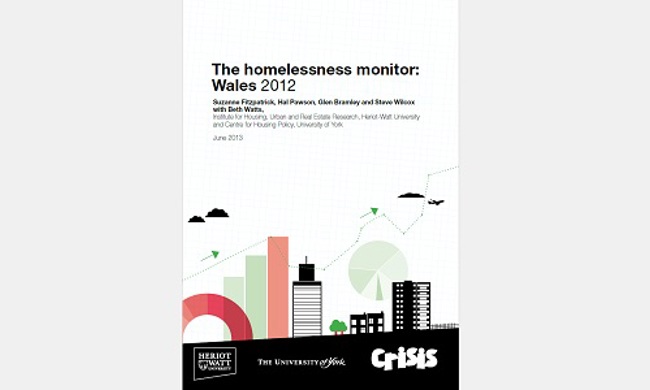The Homelessness Monitor: Wales 2012
06.04.2012
The Homelessness Monitor: Wales 2012 is the first annual report of an independent study, funded by Crisis and the Joseph Rowntree Foundation, of the homelessness impacts of recent economic and policy developments in Wales.
Key findings
- The first ever Housing Bill for Wales, expected in Autumn 2013, is likely to introduce radical reforms to the statutory homelessness framework, providing statutory backing for a more prevention focused approach.
- The proposed new homelessness ‘prevention and alleviation’ duties appear to command general support in Wales, but there is intense debate on specific elements, particularly the proposals to retain priority need and local connection tests while reasonable steps are taken to alleviate homelessness, and the proposed duty for local authorities to provide interim accommodation if households have ‘nowhere safe to stay’.
- After a sharp decline between 2004/05 and 2009/10, associated with the widespread adoption of more pro-active preventative approaches by Welsh local authorities, statutory homelessness applications and acceptances have subsequently trended upwards in Wales, but more modestly and less consistently than seen in England. Applications in 2012 were up by 3% on the previous year and stood 19% higher than in 2009/10. Conversely, acceptances actually fell back by 8% in 2012, although remaining 8% higher than in 2009/10.
- Forms of ‘hidden’ homelessness – including concealed, overcrowded and sharing households – demonstrate a more mixed trend in Wales than the generally upward pressure evident in England. The number of concealed households is fairly static in Wales, with estimates of 119,000 concealed single person households in 2012, as well as 10,000 concealed couples and lone parents. After a longterm decline, there has been an increase in the number of sharing households in Wales in the last two years. The decline, and then subsequent rise, of this indicator has tracked trends in the UK but at a slightly lower level. In 2012 there were about 16,000 households sharing in Wales. Overcrowding affected around 26,000 households in Wales in 2010.
- While still less acute than that in England, pressure on affordable rented housing is continuing to intensify in Wales. Postdevolution housing expenditure in Wales has consistently formed a lower proportion of government expenditure than elsewhere in the UK, and the Welsh Government's target of some 7,500 new ‘affordable’ homes over the next three years may be challenging to achieve in the current financial climate.
- In combination with the prolonged economic downturn, and in common with other parts of the UK, welfare reform seems certain to drive homelessness up in Wales over the next few years. Greatest concern focuses on the new 'underoccupation penalty' (or ‘bedroom tax’) within Housing Benefit for working age social tenants, estimated to impact on as many as 44,000 social tenants in Wales. There is also widespread anxiety about the extension of the Shared Accommodation Rate of Local Housing Allowance to 25- 34 year olds living in the private rented sector, and about a host of practical issues associated with the introduction of the Universal Credit regime, as well as the lowered values of the benefits to be provided for lone parents and larger families.
- Overall, the data available on homelessness in Wales is substantially more limited than that available in England and Scotland, particularly with respect to rough sleeping.
Reference
Fitzpatrick, S., Pawson, H., Bramely, G., Wilcox, S. & Watts, B. (2012) The Homelessness Monitor: Wales 2012. London: Crisis.

